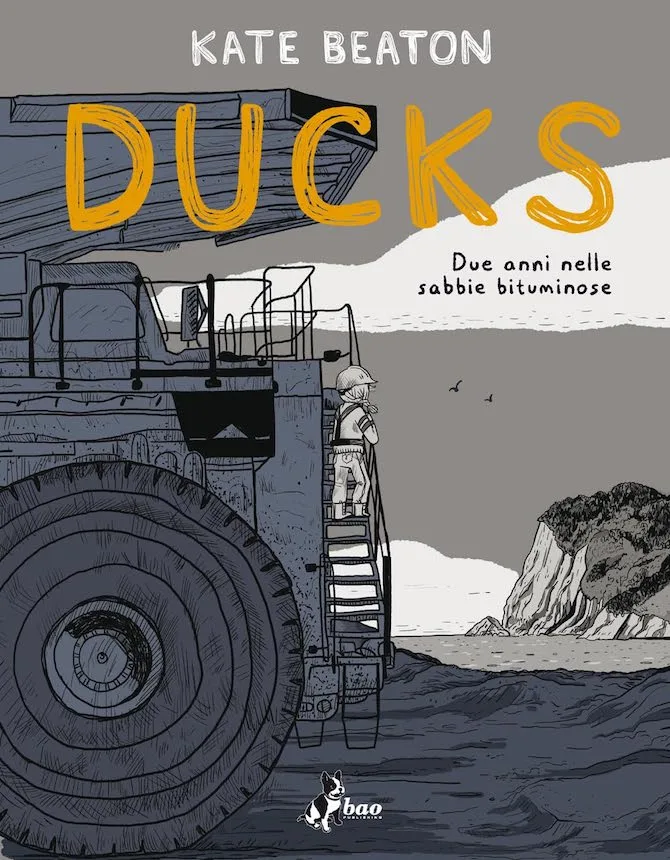graphic novel stupenda
4 stars
interessante la prospettiva sulla moralità che l'autrice ha all'interno del libro TW: violenza di genere

Graphic novel, 436 pages
Italiano language
Published by Bao publishing.
Un libro già premiatissimo in tutto il mondo, definito all’unanimità uno dei più belli e toccanti del 2022. Portato ora in Italia da BAO Publishing, per cui si appresta a diventare un titolo imprescindibile, è un libro di ricordi dolorosi ma necessari: uno spaccato di vita autobiografico in cui l’autrice racconta i suoi anni passati a lavorare per una compagnia petrolifera. Unica donna in un contesto sempre troppo permeato di mascolinità tossica, subisce violenze psicologiche e fisiche, in un crescendo di brutalità che non fa sconti. Un libro che però assume i toni di una storia di ricordi, non di denuncia, e che si rivela proprio per questo tanto più toccante e intenso.
interessante la prospettiva sulla moralità che l'autrice ha all'interno del libro TW: violenza di genere
This story is not surprising, hopefully one day it will be. But the graphic novel format and the artwork grabbed my attention in a way I can't explain.
There are some heavy topics covered in this book. But I feel they are important to share out. Specially if you are a man, this point of view of a woman in a male-centric workplace makes you realize all the things that you may have missed. A must read for anyone who loves graphic novels
How can men be so crass, so misogynistic, so violent, when transplanted to the extreme environs of capitalist extraction far from anyplace recognizable as home? Documentary reflection after anguished disillusion and mistreatment, drolly told.
“Enjoy” isn’t quite the right word for a read that’s about something as nuanced and anguished as this is, but it’s also apt. I lingered over it and zoomed through it. It’s generous and devastating, sympathetic to the awful positions poor people find themselves in to get by and to the ways it warps who they are, and devastating in how it depicts the violence directed at everyone—women and the land, especially, but also the men who are used up without regard to turn profits for the company.
This is a powerful memoir which has a lot to say about how we (particularly Canada as a resource extraction colony, but also a broader "we") treat the people whose physical labour runs parts of the economy we'd rather not think about. The experience turned out predictably badly for Beaton, but in looking back she maintained empathy for the people involved, keeping a clear on focus on what the context of oil sands work camps does to people.